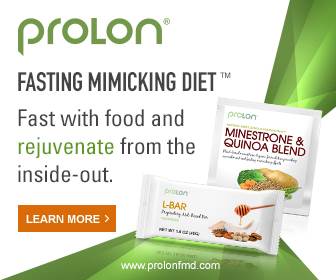Even better, let’s start at the source: What’s in your grocery cart? Where do you shop? Is it Safeway, Kroger, Wal-Mart, Costco? Is it Whole Foods? Your local market? The farmers’ markets? Are you buying Safeway’s O Organic brand in an effort to eat more healthfully? Do you shop at the Whole Foods exclusively, thinking that this “health food store” has preselected health fare for you?
Let’s take a look in the fridge. Are you a minimalist when it comes to designing the content? Condiments, beer, takeout box? Or, are you more of a juice and beverage person: OJ cartons, low fat milk, tea?
You may think take-out every night is saving time, but you have no control over what is used in your food, and let me tell you, it’s not the highest quality. You’re getting high sugar/salt sauces, non-organic meats and veggies, and damaged fats. I can’t think of anyone who is immune to stress and packed days full of work, school, kids, errands, bills….. the list goes on. Who has time to cook? It’s easy to grab a box, just add water, hit the drive-thru, or call for take-out. But you know what? Your lifestyle and your diet are directly influential in preventing (or causing) disease. You’d find the time to dedicate to your diet and lifestyle if a chronic illness was staring you in the face.
My point is this: there are not shortcuts to good health. You have to cook. You have to shop (unless you can afford someone to do this for you). With a little effort and some price comparison, it needn’t be expensive or incredibly time consuming. And don’t think that just because you’re shopping at Whole Foods, you’re getting all healthy foods. Processed food is processed, whether it has evaporated cane juice and non-hydrogenated shortening in it or not. These foods –the “healthy” cookies, crackers, chips — should be saved for special occasion or used only as treats. The ones you find at the health food store may not have artificial preservatives, but they can still be high in salt and sugar.
SO! Let’s take a peak inside the busy family’s fridge:
-eggs: great. Where do they come from? Eggs are so easy to buy from a nearby family farm or farmers’ market where you can chat with the farmer about what the chickens ate or how they were raised. Always buy organic, free range, vegetarian feed (preferably soy-free).
-milk: are you using skim milk? ACK! Your body needs the fat that is naturally present in milk to absorb the vitamins A & D, which are fat soluble vitamins. Go for whole milk, or low fat is acceptable (but not preferable), but NEVER skim. This is not a whole food! Raw milk is best, obviously, because the high temperatures used in pasteurization and homogenization kill beneficial enzymes. See my previous post: https://www.maryvancenc.com/2008/12/raw-milk/
Same goes for yogurt. Always buy organic dairy! If you are dairy free, avoid soy milk and go for nut milks. It’s so easy and delicious to make your own:
https://www.maryvancenc.com/2009/03/make-your-own-nut-milk-recipe/
-juice: I prefer that you eat the whole fruit. You get the fiber from the fruit that way, and juice is very high in sugar and also pasteurized, killing the enzymes. Or, try juicing on your own. In general, use fruit juices minimally.
-meats: avoid processed lunchmeats (high in sodium and preservatives) and non-organic. Meat is one area that you really want to buy organic, for the environment’s sake and your health.
-fruits and veggies: Do you include leafy greens? Buying organic where possible? Best to buy greens and fruits from the market and organic meat from the store. Or, consider a veggie delivery box to save time. These are cropping up everywhere and offer organic farm-to-you fresh fruit and veg options. Always buy organic berries and greens, but fruits with thick peels (avocado, banana, pineapple, mango, oranges, etc) are ok conventional.
How many of your products are GMO-free? Do you know? The scary thing is, if you shop at a big supermarket, you won’t know because it’s not mandatory to label (unless you buy organic). Shopping the farmers’ market is best to ensure you’re avoiding genetically modified foods.
Try this for a week: shop the farmers’ markets on the weekends for fruit and vegetables and whatever other staples you can find: eggs, dairy, nut butters, nuts, honey, beans, etc. Then hit the store for meats. Try a slow cooker recipe or make a big pot of something to eat on for the week. Then whip up a side salad or leafy greens or a grain to accompany it for variation. Roast a chicken and eat on that for the week. You’ll feel better, really.

Mary Vance is a Certified Nutrition Consultant and author specializing in digestive health. She combines a science-based approach with natural therapies to rebalance the body. In addition to her 1:1 coaching, she offers courses to help you heal your gut and improve your health. Mary lives in San Francisco and Lake Tahoe in Northern California. Read more about her coaching practice here and her background here.





